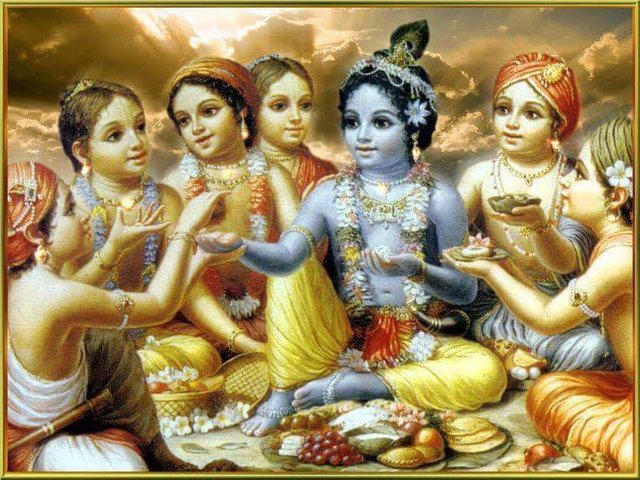Come To Load Krishna
 The Gita enables you to shed illusion, fear and anxiety, leaving you free to progress towards the abode of the Divine.
The Gita enables you to shed illusion, fear and anxiety, leaving you free to progress towards the abode of the Divine.
The 66th verse in the last chapter of the Bhagwad Gita is the culmination of the elaborate teaching of Krishna to Arjuna. It presents in a nutshell, how one can discriminate between the ephemeral field and the Eternal, changeless Self, the witness of all the activities of the field, the mind-body complex.
After discussing in great detail the play of nature and gunas that determine the quality and focus of all our actions, Krishna advises Arjuna to reflect on all that has been imparted to him and then act on his free will. However, He reassures Arjuna that for one who has the knowledge, there is no more grief from the mundane cyclical existence of life and death.
Act Without Expectation
‘Abandon all forms of rites and duties and take refuge in Me alone’. The expression ‘abandon’ is not to suggest avoidance of ones duties and obligatory actions; rather the attitude of action without expectation of rewards and merit. The Ishavasya Upanishad says: ‘Those who worship the Unmanifest Prakriti enter into blinding darkness; but those who are devoted to the manifested — Hiranyagarbha, total mind — enter into greater darkness.’ For to seek fulfilment through ones desires and action is a denial that It is He.
To know anything there are three possibilities:
I know
I do not know
I know it as other than what it is
There is no difficulty when I know. In case I do not know, I am ignorant and, therefore, there is no conflict with what I am unaware of. Also there is a possibility that I could know at a future date.
When I know a thing as something other than what it is, I am pushing myself into an abyss. This is moha delusion, a case of mistaken understanding but reinforced in my mind as the correct knowledge. As I am convinced, I have the right knowledge, I never question or enquire and continue to hold on to my fallacious understanding.
Work To Do Your Duty
By pursuing the manifest creation of matter and form as the object of my desire for timeless happiness, I am anchoring my hope on a perishing changing situation. How can this ever provide me with anything except swings of joy-sorrow, love-hate and happiness-unhappiness? This is a bottomless pit and the more I seek to control the changing creation, freeze the moment as it were, the more I would be tormented by anxiety and fear of when the change would wipe out my make-believe world.
This is blinding darkness without a glimmer of light. Krishna, therefore, sums up this verse by making a pointed reference to avoid the entrapment of performing work for achieving happiness. Work is done for performing one’s duty and for the benefit of society.
The classic example of a pot filled with water on which the sun is reflected is used to illustrate the sense of delusion that we all lapse into when we place our confidence on what is a mirage. Looking at the pot, water and reflection, I am so entranced by the presentation that I conclude that the reflection is the ultimate. I do not raise my gaze upward to see the real sun which casts its reflection on the water in the pot. When I look at the sun itself, then I no longer see the pot, water or the reflection.
Similarly, I am so beguiled that by my body, the jar, the shimmering waters, my thoughts and the reflection, my i-sense — that I strive towards ensuring the continuance of these fickle and illusory aspects rather than appreciate the sun, the reality and truth that I am. Krishna asks us to look beyond the illusion and know Him who will be our refuge and release us from the trauma of life and death.
Drop All Delusions
The Upanishads state that we can only claim or own what we already are and that is that we are inseparable from the Eternal. This is our truth, and our real state. We are ignorant of this. We have a delusion of what the truth is, like obsessing about the reflection and forgetting the sun. Owning or claiming without doubt and the misgiving that I am the Eternal, is true knowledge — and not mastery over words and language. I have to confirm that what I seek is who I am and that This is That.
To overcome my delusion, I need to surrender my fixation of the reflection, the i-sense and turn my focus on to the real. For this, I seek the grace of the One who is all-pervasive and through His grace, receive the insight from a preceptor, a guru who points me to my own Self. I am able to shed the skin of illusion and walk free from fear and anxiety of loss, to my strength and abode, Krishna.